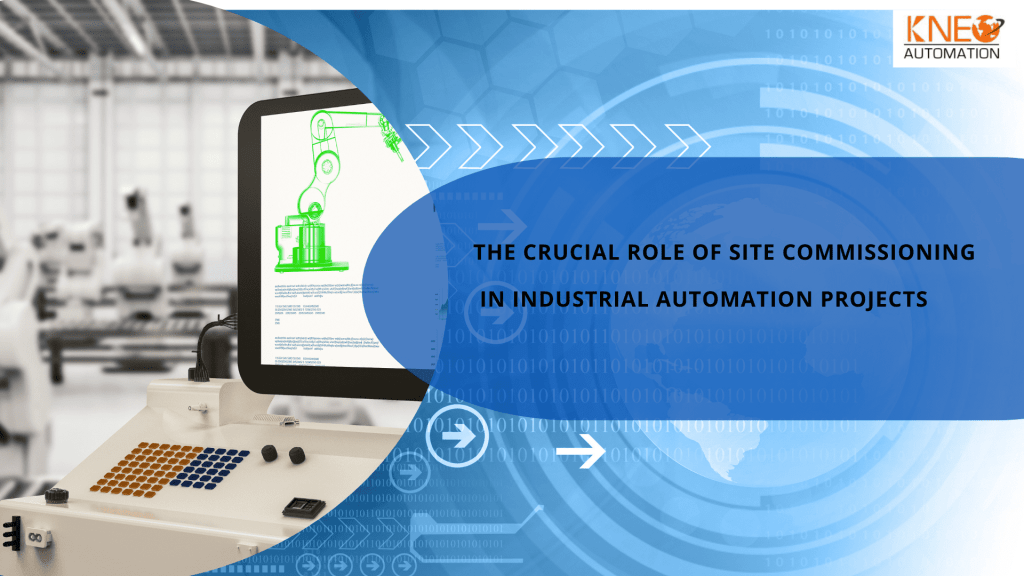
It takes more than just cutting-edge technology and creative concepts to bring a vision to life in the rapidly evolving field of industrial automation. Site commissioning is a crucial step in ensuring the successful completion of the intricate process that turns a blueprint into a fully functional system. Site commissioning serves as a link between the conceptual stage of an industrial automation project and its practical implementation, enclosing tasks such as measuring equipment operation and optimizing systems for maximum performance.
Unveiling the Multifaceted Role of Site Commissioning
- Guardian of System Integrity: Industrial automation systems are intricate webs of hardware and software. Site commissioning acts as the vigilant guardian, meticulously testing each component and connection. This rigorous scrutiny prevents costly failures, ensuring the system operates as a cohesive unit.
- Champion of Safety and Compliance: Safety is paramount in industrial environments. Site commissioning includes comprehensive safety checks, guaranteeing that all automation elements adhere to stringent regulations. This proactive approach safeguards both personnel and equipment, mitigating risks and potential legal complications.
- Catalyst for Operational Excellence: A well-commissioned system isn’t just functional; it’s optimized for peak performance. Site commissioning fine-tunes the system, maximizing efficiency, energy conservation, and reliability. This translates into tangible benefits: reduced operational costs, increased productivity, and enhanced profitability.
- Shield Against Downtime: In the fast-paced world of industry, downtime is the enemy of progress. Site commissioning acts as a shield, proactively identifying and resolving potential issues before they disrupt operations. This translates into uninterrupted production, safeguarding revenue streams and maintaining competitive advantage.
- Integrator of Complex Systems: Modern industrial automation often involves a symphony of subsystems working in concert. Site commissioning ensures harmonious integration, validating seamless communication and interaction between diverse components like robotic arms, conveyors, and control systems.
- Empowerment Through Knowledge Transfer: Successful automation relies on skilled operators. Site commissioning includes comprehensive training, empowering on-site personnel to operate and maintain the system confidently. This knowledge transfer ensures long-term operational success and minimizes reliance on external support.
In Conclusion
Site commissioning isn’t merely a procedural step; it’s the bedrock upon which successful industrial automation projects are built. It’s the meticulous process that transforms concepts into reality, ensuring safety, efficiency, and optimal performance. In the dynamic landscape of modern industry, where precision and reliability are paramount, site commissioning is the indispensable key to unlocking the full potential of automation